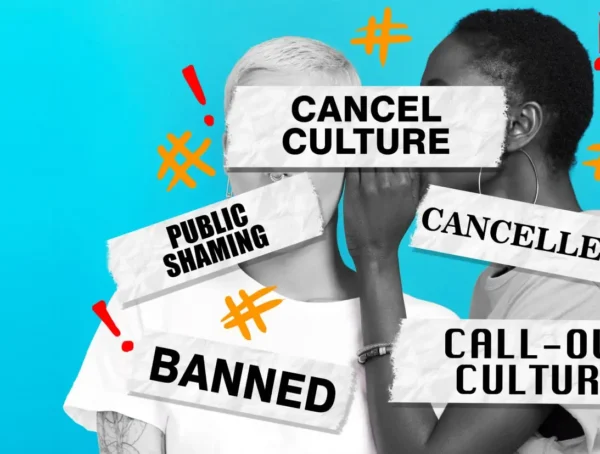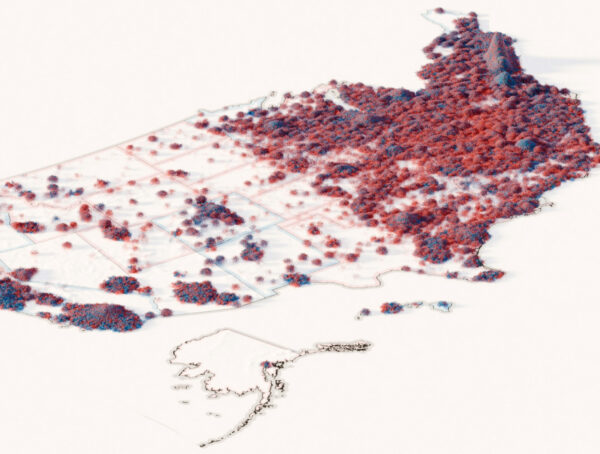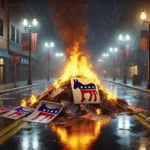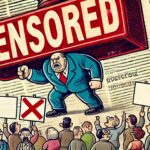TL;DR Summary:
The Senate Homeland Security Committee’s investigation into the COVID-19 lab-leak theory revealed a pattern of deception, including suppressed evidence, manipulated scientific narratives, and inadequate oversight of high-risk research like gain-of-function studies. Key findings include conflicts of interest, evasion of transparency laws, and regulatory gaps that endangered public trust. These actions eroded confidence in science and governance, underscoring the need for transparency, accountability, and independent oversight to restore trust and prepare for future crises. Without systemic reform, the next global emergency risks facing an even greater collapse of public faith in institutional integrity.
The Web of Deception: Lies, Cover-Ups, and the Origins of COVID-19
The COVID-19 pandemic wasn’t just a global health crisis; it was a magnifying glass, revealing cracks in the systems we depend on for truth and accountability. This investigation takes us deep into the Senate Homeland Security Committee’s findings, exposing a disturbing pattern of deception. Publicly, the lab-leak theory was labeled a fringe conspiracy, yet behind closed doors, officials acknowledged its plausibility. Emails, conflicting narratives, and suppressed evidence show how priorities shifted—not toward uncovering the truth, but toward shielding institutions from scrutiny.
And the implications? They’re chilling. Gain-of-function research, experiments that make viruses more dangerous to understand their threats, was cloaked in secrecy. Despite funding risky projects in Wuhan, officials evaded accountability by sidestepping transparency laws and burying their tracks. Financial entanglements further muddied the waters, with policymakers linked to companies profiting from pandemic policies. These maneuvers weren’t just lapses in judgment—they represent a prioritization of institutional self-preservation over public safety. Trust wasn’t just strained; it was shattered.
But now, we’re left with the ultimate question: where do we go from here? Lies and cover-ups have corroded the very foundations of our trust in science, governance, and oversight. If these institutions can’t confront their failures with transparency and accountability, how can they hope to protect us in the future? The stakes are astronomical. Because trust, once broken, isn’t just hard to rebuild—it becomes the biggest threat to navigating the next global crisis. Moreover, the emergence of misinformation and the complicity of figures like Biden and the censorship industrial complex only further complicate our ability to discern truth from deception. As trust erodes, public skepticism mounts, hindering effective communication during critical moments when unity and clarity are paramount. If we fail to address these challenges head-on, we risk deepening divisions that inhibit our collective response to future threats, leaving us even more vulnerable when reliable guidance is needed the most.
Damning Exposures of Lies or Crimes in the Hearing with Timestamps
- Violation of FOIA and Concealment (1:30:39)
Officials used private emails to evade FOIA requirements, withholding critical information about gain-of-function research and pandemic response decisions. - Gain-of-Function Research Violations (30:15, 1:30:39)
NIH funds were funneled through EcoHealth Alliance to support prohibited gain-of-function experiments at the Wuhan Institute, violating U.S. moratoriums on such research. - Manipulated Scientific Narratives (30:15, 1:40:44)
Scientists privately admitted the lab-leak hypothesis was plausible but publicly dismissed it under coordinated pressure, misleading the public and suppressing transparency. - Suppression of Legitimate Scientific Inquiry (1:10:38, 1:40:44)
Public health officials worked with media outlets to discredit dissenting scientists, stifling alternative hypotheses and labeling evidence-based arguments as conspiracy theories. - Conflicts of Interest in Vaccine Policy (2:00:50)
Key officials had financial stakes in vaccine companies while overseeing COVID-19 policies, raising ethical concerns about biased conclusions and compromised integrity. - Misinformation in Research Oversight (1:50:47)
Laboratories were found to comply with requests to provide materials for creating lethal viruses, revealing dangerous regulatory gaps and potential illegalities. - Suppression of Risk Data on Vaccines (1:10:38)
Public communications downplayed vaccine risks, such as myocarditis and waning immunity, undermining trust and transparency. - Conflicting Intelligence and Scientific Findings (1:40:44, 2:00:50)
Intelligence community reports supporting a lab origin conflicted with public scientific narratives, highlighting inconsistencies in how the origins of COVID-19 were handled. - Inadequate Oversight of Gain-of-Function Research (1:30:39, 1:50:47)
Regulatory gaps in high-risk biomedical research persisted for decades, despite existential dangers underscored during the pandemic. - Intentional Obfuscation of Research Funding (2:00:50, 1:20:36)
Organizations like EcoHealth Alliance received NIH funds despite documented non-compliance and violations of grant terms, raising accountability concerns.
The COVID-19 investigation reveals something unsettling—not just the origins of the virus, but the origins of mistrust. The lies and cover-ups weren’t just missteps; they were deliberate choices that sidestepped transparency and accountability. Officials manipulated scientific narratives, concealed funding for risky research, and suppressed dissent, all while the public was left in the dark. These actions didn’t just obscure the truth; they eroded the very foundations of trust in science and government—foundations we depend on to protect us. As investigations unfold, Fauci’s controversial actions explained reveal a complex interplay of urgency and caution that has left many feeling betrayed. The lack of clear communication about the scientific uncertainties compounded the issue, fostering an environment ripe for conspiracy theories and misinformation. This breach of trust demands transparency moving forward if we are to rebuild confidence in public health institutions and ensure better preparedness for future crises. As theories surrounding the virus’s origins gained traction, lab leak theories and misinformation proliferated, complicating the already fragile relationship between experts and the public. The failure to address these narratives transparently only fueled speculation and fear, creating an environment where skepticism overshadowed science. Ultimately, this erosion of trust could have lasting consequences, hindering our ability to respond effectively to future public health crises.
But here’s the thing: trust isn’t just a feeling; it’s a system. And when that system breaks down, as it did here, the consequences ripple through every layer of society. To fix it, we need more than just answers—we need a commitment to transparency, independent oversight, and accountability. The question is, will we rise to meet the challenge? Because if we don’t, the next crisis won’t just be a test of our systems—it will be a test of whether we even trust them to act in our best interests at all. And that, my friends, is a question none of us can afford to leave unanswered.
More from Politics
Why You Can’t Trust the News Anymore
In today’s media landscape, the illusion of an unbiased, purely journalistic fourth estate is as believable as a late-night infomercial …
Cancel Culture: The Hunger Games of Social Media
From Torches to Tweets: The Lynch Mob Goes Digital Cancel culture is the sacred cow of our enlightened era. Over the …
Why the ‘Racism’ Excuse for Kamala’s Loss Falls Apart
Let’s get one thing straight: Kamala Harris didn’t lose the 2024 election because of racism, misogyny, or some other well-worn …



















